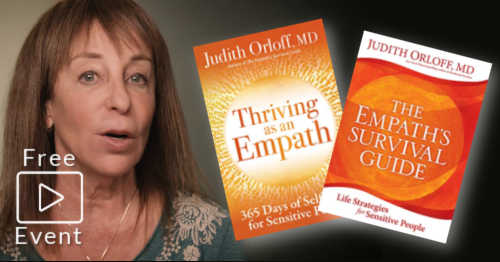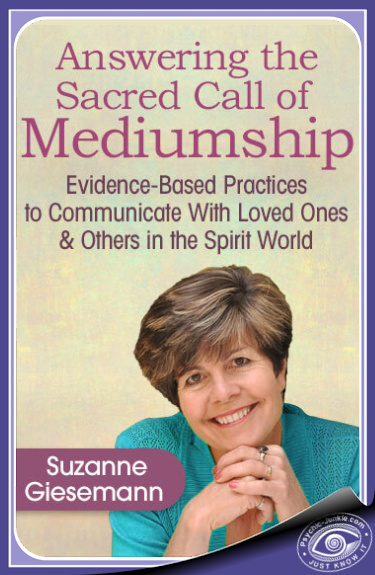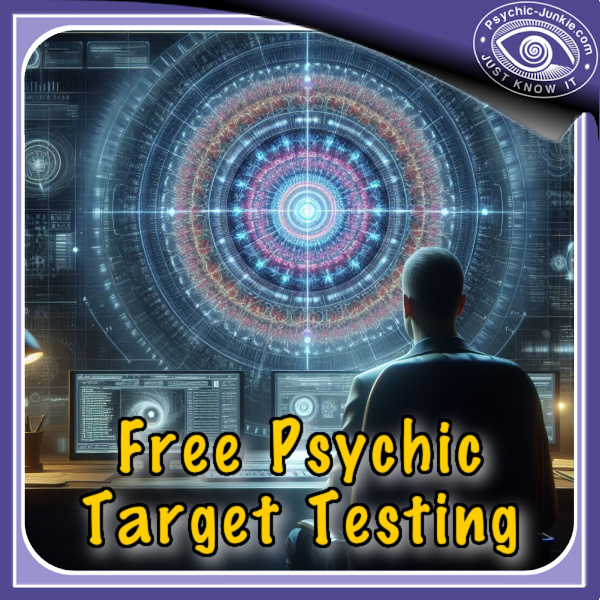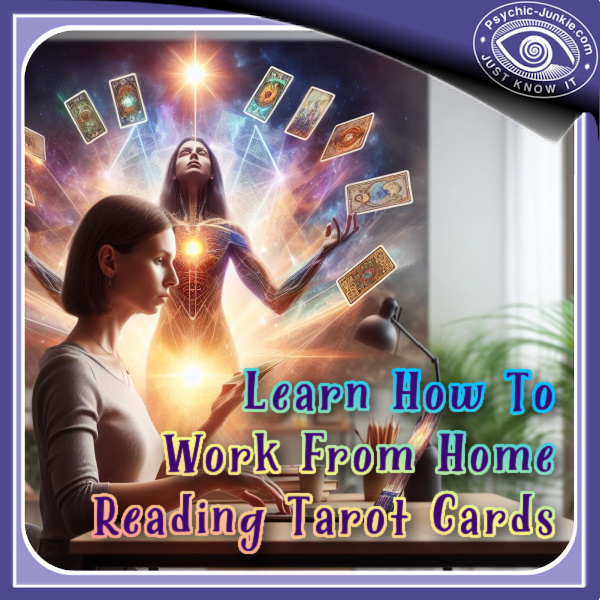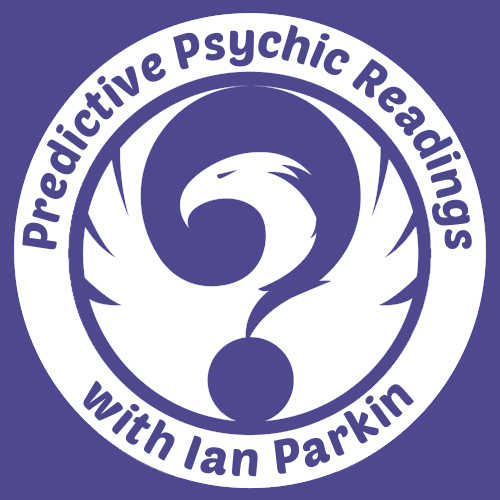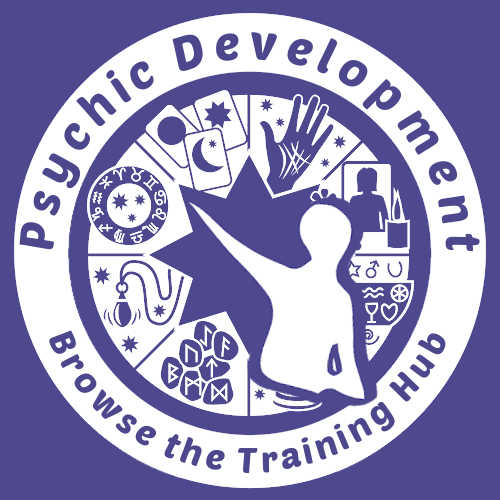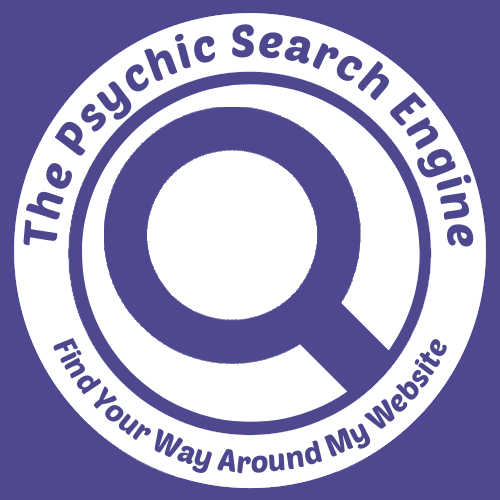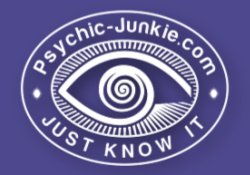How To Help An Empath Survive And Thrive With Sensitivity
Dr. Judith Orloff shows how to help an empath survive and thrive with their sensitivities in this free video event hosted by the Shift Network.
If you’re an empath or sensitive person, it’s more important than ever to reign in your extrasensory “feelers” - and start using your special intuitive powers to attend to your own physical and emotional wellbeing - so you’re not energetically drained by the world’s suffering, others’ stresses - and your own emotional triggers.
What is a Psychic Empath?
What is a Psychic Empath?
- A psychic empath has the ability to sense and absorb other people's emotions and energies. This requires a high level of self-awareness, mindfulness, and the ability to distinguish between your own feelings and those of others. Regular meditation can help to enhance your intuitive abilities. It's also important to learn grounding and shielding techniques to protect yourself from negative energies. Remember, being an empath is not just about feeling the emotions of others, but also understanding them, which can often lead to providing comfort and healing.
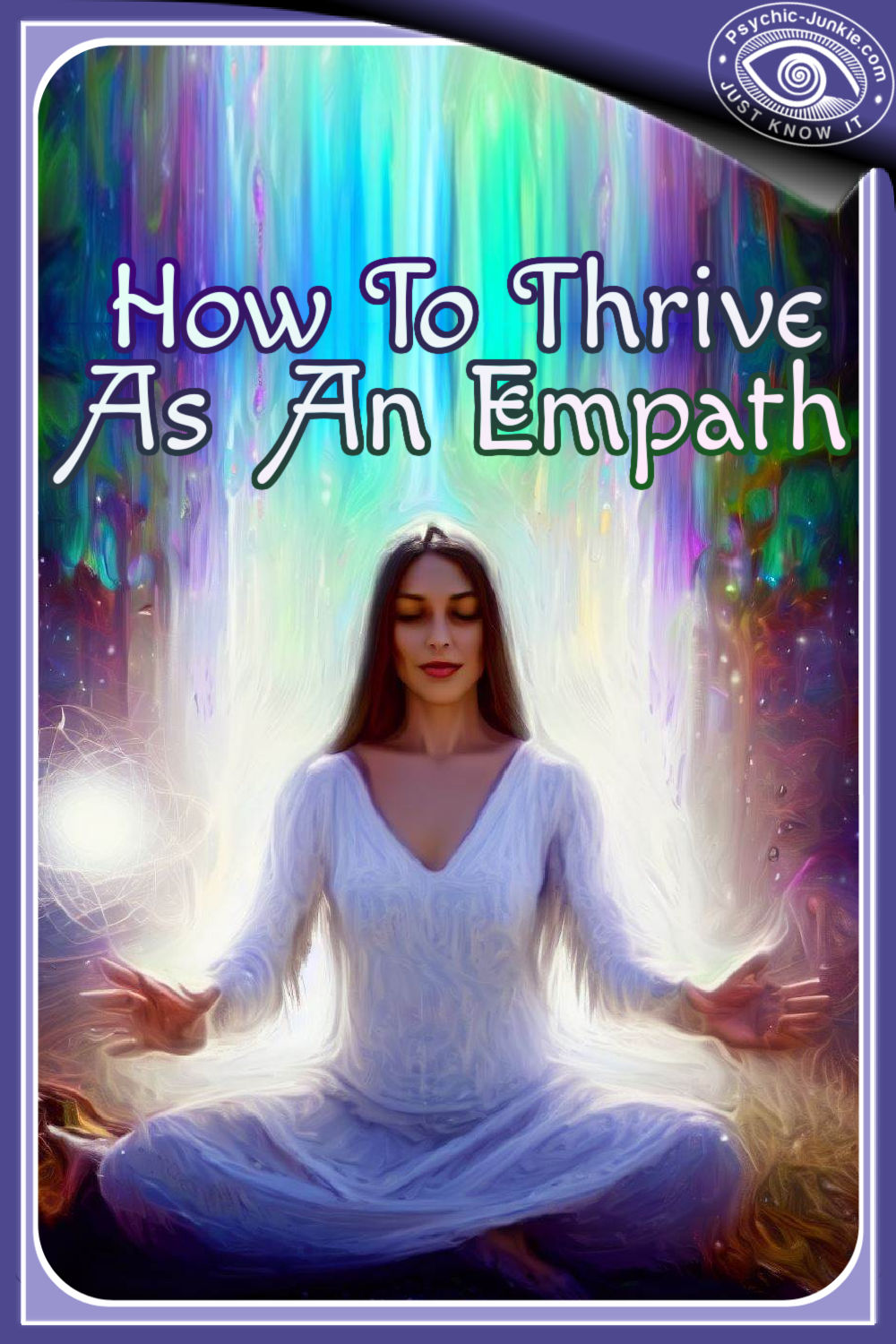
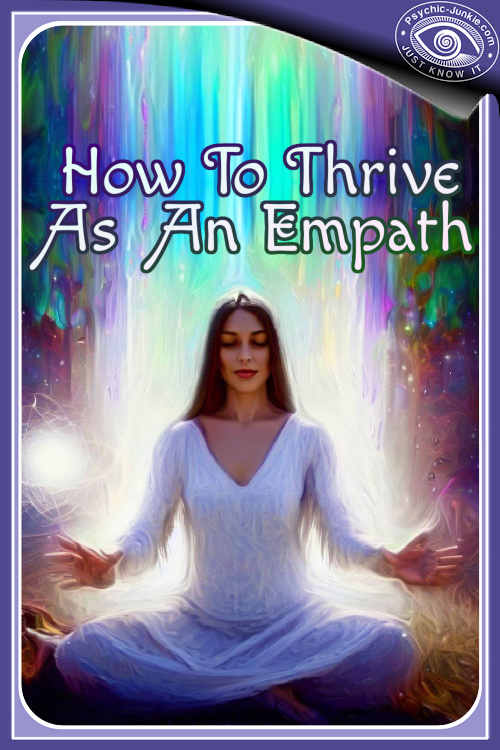
Bestselling author and psychiatrist Judith Orloff, MD, will share how to help an empath build effective energetic protection skills and lean into the art of surrender - to become unburdened of toxic energies and able to transmute your life experiences - in a free video event, Dr. Judith Orloff’s Keys to Being a Healthy Empath: Practices for Protection, Surrender & Listening to Your Intuition During Stressful Times.
How To Help An Empath Protect, Surrender, And Listen To Intuition
During this self-empowering 60 minutes, you will:
- Learn about your brain’s mirror neurons, and how they activate both your empathetic predisposition and your gift for greater sensitivity and intuition
- Learn what intuitive healing means for empaths and sensitive people… and how to access this gift
- Discover the key to surrendering to anxiety and fear, and how thinking and feeling it doesn’t mean you have to take it on energetically
- Discover the importance of energetic protection in accessing, enjoying, and sharing your intuitive gifts
- Experience a guided meditation to feel into the power of surrendering, so you can gain trust in the moment and be there for yourself and others
Judith teaches everyone how to help an empath not to succumb to their triggers and all the cries of the world, and, instead, to listen first to their inner voice - what she calls the voice of energy.
To be a healer - for yourself and others - you need to feel your own strength. Judith can show you how to find this inner power consistently… through practices you can access quickly and easily.
You won’t want to miss this special hour to start enjoying each moment and your unique predisposition for greater compassion, love, and a clear knowing that can help you and others heal.
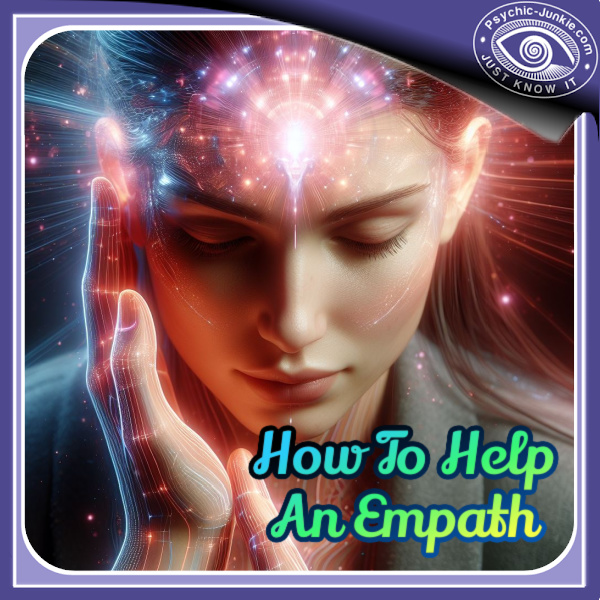
P.S. In Dr. Judith Orloff’s Keys to Being a Healthy Empath: Practices for Protection, Surrender & Listening to Your Intuition During Stressful Times, you will experience a shielding practice to protect yourself from negative, stressful, toxic, or intrusive energies - and feel more centered, happy, and energized.
No one shows how to help an empath better than Judith Orloff, MD.
Judith Orloff, MD, is a psychiatrist, an empath, and the New York Times bestselling author of The Empath’s Survival Guide: Life Strategies for Sensitive People and Thriving as an Empath: 365 Days of Self-Care for Sensitive People. Product from Amazon, publisher may get a commission > >
As an intuitive healer and member of the UCLA clinical psychiatric faculty, Dr. Orloff synthesizes the pearls of traditional medicine with leading-edge knowledge of intuition, energy, and spirituality. She also specializes in treating highly sensitive, empathic people in her private practice. Dr. Orloff’s work has been featured on The Today Show, CNN, and in O, the Oprah Magazine and The New York Times.
Have Your Say About How To Be An Empath
If you would like to ask questions, add answers, or comment on this page please use my contact form. Start the conversation with the heading About How To Be An Empath.
Or if you're inspired to write an article on this subject please submit a guest post here.
Why Being An Empath Is As Exhausting As It Is Rewarding - by Larry Armstead
Of all the psychic gifts, being an empath is probably one of the more exhausting and rewarding. Imagine walking into any room and feeling residual energy from someone else that has once been there in the past as well as the active energy of those people around the room in the present.
Tonight, I got a call from a long-lost friend that I worked with many moons ago. At the risk of sharing her real name, we will call her Regina. The last time Regina and I hung out was at her house in the middle of nowhere. She and her eldest son had some real life haunting experiences at their home, and she asked if I’d come over to help assist the spirit to the white light. I did so, but it was at that time that Regina informed me that she and her son also had this highly sensitive gift but didn’t know how to use or control it.
When I spoke with her tonight, she had a completely different perspective and was much more positive about being highly empathetic. She had read my help on living as an empath and now knew her ability to understand the feelings of others was her personal psychic gift.
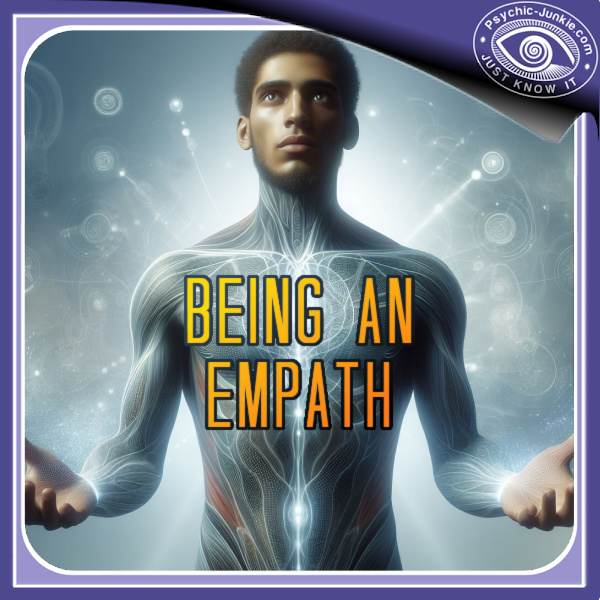
Pros And Cons Of Being An Empath
In my own experience this is what it feels like to be an empath.
1. Empaths typically identify as loners. Since something such as crowds, parties, and other large groups tend to wear down and drain empaths, they prefer to have time alone so they can recharge their batteries. I’ve known empaths to get overwhelmed and hide in the restroom just to get away for some brief alone time to recharge and to diffuse the emotion overload of feeling the negative emotions of those around them.
2. Empaths are also people who are highly sensitive. They’re often told that they need to quit being so sensitive, but that’s easier said than done. Their energy is especially wide open which can make themselves prone to be givers (even to their own detriment). They also tend to easily get their feelings hurt.
3. Empaths are typically introverts. They typically do not make friends easily. In the case that the empath is an extrovert, they tend to limit their time in crowds and around everyone. Ideally, one-on-one conversations and meetings are the best.
4. Empaths have really refined guts. The empath is someone who is likely to be much more intuitive than the average person. For these people their gut feelings dictate how they live their lives and experience the world. This helps them to make better informed decisions about people.
5. Romantic relationships are challenging. While they are likely true hopeless romantics, this notion only goes so far. They still do not welcome people in their space emotionally, and they cherish their time alone. This is because being an emotional sponge they spend so much time with the feelings and emotions of others that they need to maintain the relationship with their own identity.
This is by no means an exhaustive list of things to look out for, but it is a pretty good start.
Larry Armstead (or ParaLarry) is a psychic medium who has been doing readings for many years.
Learn To Be A Psychic Medium
An Evidence-Based Path to Communicate With Loved Ones & Others in the Spirit World.
In this FREE hour with Suzanne Giesemann, you will: Gain an understanding of “evidential” mediumship and why it’s so sacred. Discover the 3 keys to mediumship: Belief in the Spirit World, alignment, and a shift in focus from the physical to the Spirit World. Learn how you can begin communicating with your loved ones who have passed. Find mediumship can be a path for your soul’s evolution. Hear about what makes a reading “evidence-based” - and how this form of mediumship raises the bar and meets the true goal of being an authentic and indisputable voice for Spirit. Experience a practice to connect with your guides and ask them for signs. Click here to learn more about this free event > >
Test Your Psychic Ability
The Lifeleap Institute’s Psychic Project is a unique online psychic development tool using real people and events as "psychic targets."
They start by asking you to focus on the "psychic targets" and answer a series of special questions about these targets.
They then reveal to you the actual psychic targets. You get to compare your results with the actual psychic targets. You also get to see the results of other participants.
Even if you think you have no psychic ability, this tool will offer proof that you do.
It's easy to participate and the Psychic Project is free!
Click Here To Test Your Psychic Ability
Develop Your Intuition And Become An Online Tarot Card Reader
You can learn how to become a professional online tarot card reader in 90 days or less with Tatiana Jones' bestselling course.
In this short course, Titania teaches everything you need to know to start an online tarot reading business - with zero experience required!
You do not need to be psychic to read tarot cards online! It is all about being intuitive and “connecting the dots”.
Tarot Reading Entrepreneurship
- Help People Find Meaning
- Work Remotely
- Set Your Own Hours
- Replace Your Full Time Income
- Work Just A Few Hours Per Day
Ian Parkin is the author of this post.
